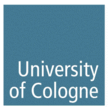
EcoMod School of Modeling and Data Science - Prague, Czech Republic
EcoMod













Prominent economist Claudia Goldin is set to receive the prestigious Talcott Parsons Prize for her groundbreaking work in economic history, particularly related to women's roles in the economy.

The BBVA Foundation has announced Charles Manski, a professor at Northwestern University, as winner of the 18th edition of the Frontiers of Knowledge Award in the Economics, Finance and Management category, for his groundbreaking work in measuring uncertainty in economic research, impacting public policy analysis.


Choosing your master's program is a big decision – with so many courses available, how can you find the right one for you? We're here to help by sharing a selection of great master's programs that you can find on INOMICS.
en fr de it

